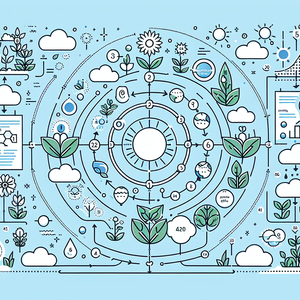From Notes to Narratives: The Transformative Power of Freelance Transcription

Transcription is not merely a mechanical process; it is a nuanced art that requires an understanding of context, tone, and the emotional landscape of human interaction. Competent transcriptionists excel in capturing not just the words spoken but also the essence of the conversation—its mood, rhythm, and subtleties. This understanding is crucial in crafting narratives that resonate with audiences. For instance, consider a transcriptionist who collaborates with a documentary filmmaker on a project exploring cultural heritage. Beyond transcribing interviews, the transcriptionist identifies recurring motifs and emotional peaks that define the community's experiences. By providing a structured outline of the material, the transcriptionist aids the filmmaker in developing a narrative that is not only informative but also deeply moving, enriching the viewing experience.
Enhancing Content Creation for Authors and Creators
Freelance transcriptionists serve as invaluable partners for authors, podcasters, and other content creators, allowing them to focus on their core message while outsourcing the transcription process. By transforming spoken dialogue into a coherent written format, transcriptionists facilitate the creative process, enhancing the overall quality of the content. For example, an author conducting interviews for a biography could rely on a transcriptionist to capture the intricacies of those conversations. The transcriptionist’s insights can help highlight poignant quotes and clarify complex ideas, thereby aiding the author in structuring the material into chapters that flow seamlessly. This collaboration not only saves time but also enriches the narrative, creating a more engaging experience for readers.
Case Studies of Transcriptionists Making a Difference
Several transcriptionists have emerged as influential figures in various sectors, demonstrating the profound impact of their work. One notable example is a transcriptionist dedicated to preserving the voices of marginalized communities. By transcribing interviews with individuals from underrepresented backgrounds, they have helped create a series of educational resources that shed light on these unique perspectives. The resulting narratives serve to amplify voices often overlooked and foster a greater understanding within broader society. Similarly, a transcriptionist working with a mental health advocacy group transformed raw interviews with individuals sharing their struggles into a compelling series of articles. These narratives not only educated the public on mental health issues but also provided solace to those grappling with similar challenges. By curating these stories, the transcriptionist contributed to a meaningful dialogue surrounding mental health, promoting empathy and awareness.
The Importance of Ethical Transcription
As freelance transcriptionists navigate the delicate terrain of representing others’ stories, ethical considerations become paramount. It is essential for transcriptionists to approach their work with sensitivity and respect for the subjects being transcribed. This includes obtaining consent, accurately representing the speaker's voice, and being mindful of the potential impact of the narrative being crafted. For instance, when transcribing sensitive topics such as trauma or personal experiences, transcriptionists must exercise discretion in how they present the material. By focusing on ethical practices, transcriptionists can ensure that the narratives they help create are not only compelling but also responsible and respectful.
Freelance transcription transcends the boundaries of a technical task; it is an integral part of the storytelling process that has the power to transform raw audio into meaningful narratives. With their keen listening skills, contextual awareness, and storytelling prowess, transcriptionists enrich various projects by collaborating with authors, filmmakers, and organizations to amplify voices and share transformative stories. As the demand for engaging content continues to rise, the role of transcriptionists will become increasingly crucial in shaping narratives that inspire, educate, and foster connection. In essence, freelance transcriptionists are the unseen storytellers of our time, preserving the rich tapestry of human experiences and ensuring that every voice has the opportunity to be heard.
Audio Transcription Specialist
Media agencies, publishing houses, educational institutions
Core Responsibilities
Accurately transcribe audio files, ensuring the preservation of tone and context.
Collaborate with content creators to outline key themes and quotes from interviews.
Edit and proofread transcripts for clarity and coherence.
Required Skills
Proficiency in transcription software and tools (e.g., Express Scribe, Otter.ai).
Excellent listening and comprehension skills, particularly in diverse accents.
Strong attention to detail and familiarity with formatting standards.
Content Development Editor
Book publishers, content marketing firms, online media platforms
Core Responsibilities
Work with authors and creators to transform transcribed content into structured narratives.
Provide feedback on content flow and suggest revisions to enhance clarity and engagement.
Manage multiple projects and timelines to ensure timely delivery of edited materials.
Required Skills
Background in editing, writing, or journalism, with a keen eye for compelling storytelling.
Familiarity with digital content management systems and publishing workflows.
Ability to synthesize information and maintain the author's voice throughout the editing process.
Ethical Research Transcriptionist
Academic institutions, non-profits, research organizations
Core Responsibilities
Transcribe sensitive interviews while maintaining confidentiality and ethical standards.
Work closely with researchers to ensure accurate representation of diverse perspectives.
Develop protocols for managing sensitive content and obtaining informed consent.
Required Skills
Understanding of ethical guidelines in research and transcription, particularly concerning marginalized communities.
Strong communication skills to liaise with researchers and subjects.
Experience in qualitative research methodologies preferred.
Podcast Transcription Coordinator
Podcast networks, media companies, content creators
Core Responsibilities
Transcribe podcast episodes and edit them for publication on websites and social media.
Collaborate with podcasters to extract key highlights and create show notes.
Ensure transcripts are accessible and searchable for audience engagement.
Required Skills
Familiarity with podcasting formats and audio editing software.
Ability to work under tight deadlines and manage multiple episodes simultaneously.
Understanding of SEO practices to enhance transcript visibility online.
Digital Content Strategist
Marketing agencies, tech companies, e-commerce platforms
Core Responsibilities
Develop and implement content strategies that incorporate transcribed materials into broader marketing campaigns.
Analyze audience engagement metrics to refine content offerings and outreach methods.
Collaborate with cross-functional teams to create cohesive narratives across platforms.
Required Skills
Experience in digital marketing and content strategy development.
Proficiency in analytics tools to measure content performance.
Strong understanding of audience segmentation and targeting.


